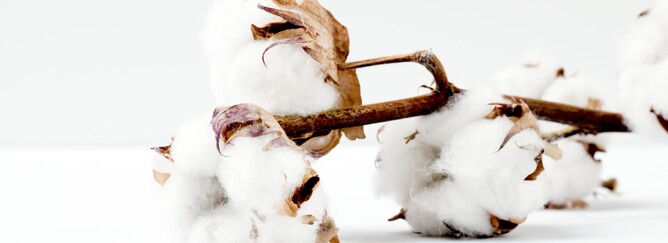Making a step-change....
As a brand ecovask® places strong emphasis on the fact our products are made from organic cotton.
With environmental sustainability one of our core values, the choice to use organic cotton was a no brainer. And while the benefits start with environment, the subsequent humanitarian impact was equally of importance.
When we started exploring the manufacturing process in 2020, we were shocked to learn just how bad conventional cotton farming was both for the environment and those involved in the production process. We are proud of our choice to only work with certified partners engaged in the production and use of organic cotton.
While we design and package our products locally, our textiles are produced in India as they lead the world in organic cotton production being among the earliest adopters of organic cotton farming practices. India's organic cotton sector is supported by a robust infrastructure of certification bodies and government agencies, which have helped to promote sustainable and ethical organic cotton production practices across the country.
The organic difference summarised;
-
Environmental and health benefits: Organic cotton is grown without the use of harmful pesticides, herbicides, and synthetic fertilizers. These chemicals not only harm the environment but also can cause health problems for farmers and workers who are exposed to them. Its farming methods promotes biodiversity and healthy soil, reduces greenhouse gas emissions and uses up to 90% less water than conventional cotton farming. A critical factor in water conservation.
-
Improved working conditions: Organic cotton farming emphasizes sustainable and equitable practices, including fair trade, prohibits the use of child labour and ensures safe working conditions and ethical production practices. And because organic cotton farming practices are more environmentally sustainable, it reduces the risk of exposure to harmful chemicals and subsequent respiratory problems, skin irritations, and other health issues.
-
Better quality: Organic cotton produces a higher quality yarn than conventionally grown cotton due to the lack of chemical treatments, resulting in softer and more durable fabrics.
-
Better for consumers: Being free from harmful chemicals, organic cotton is a safer and healthier choice for consumers, especially those with sensitive skin.
In essence, organic farming is a holistic agricultural production system that provides a route to improved livelihoods for farmers while promoting practices that safeguard the earth by working with, rather than against, natural ecosystems supporting soil health and biodiversity.
Simply put, it’s better for farmers, the planet and you.
Photo credit: Marianne Krohn


